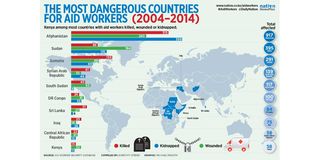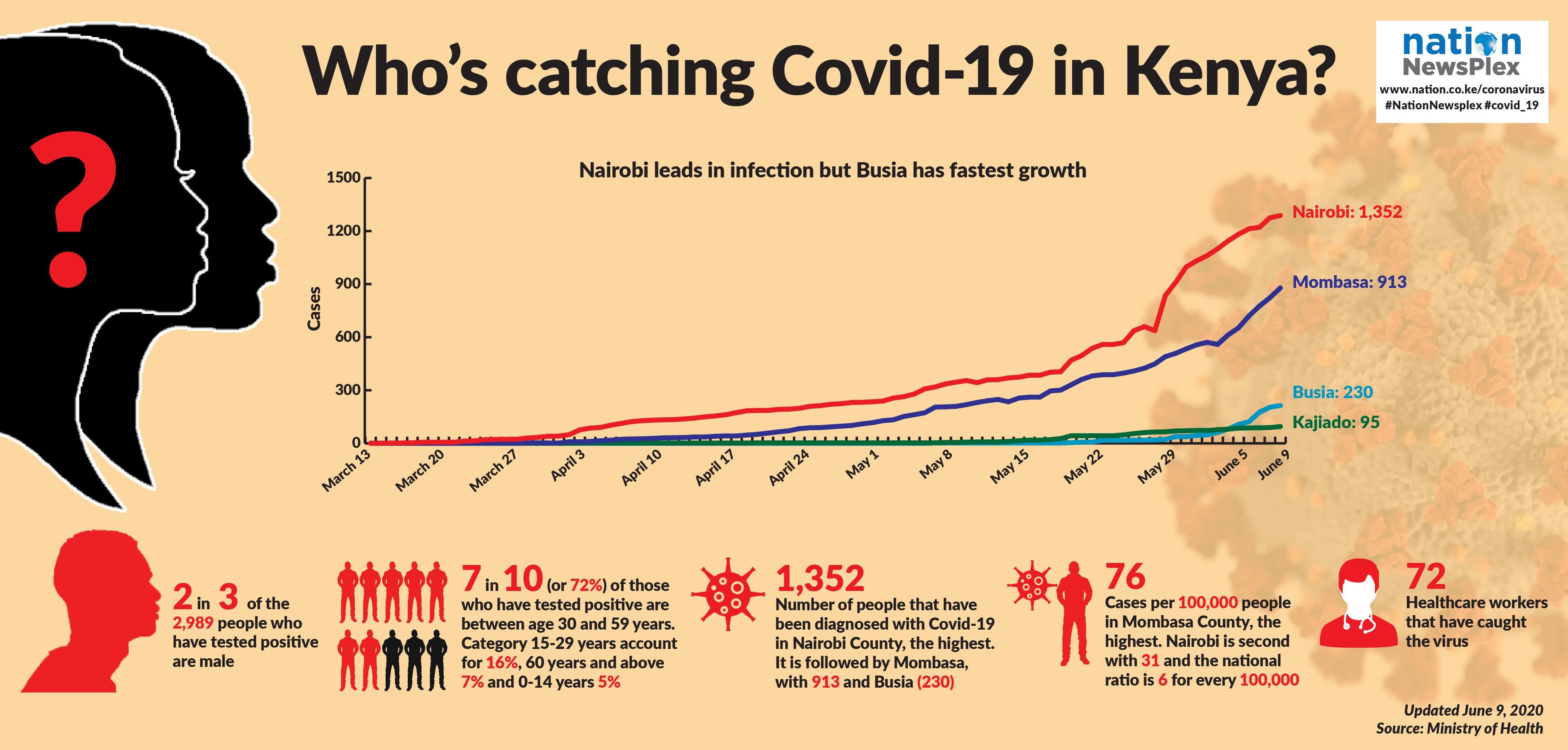MSF hospital bombing shows dangers facing aid workers

Kenya is one of the most dangerous countries for aid workers. GRAPHIC | MICHAEL MOSOTA | NATION NEWSPLEX
What you need to know:
- According to the Aid Worker Security database, Afghanistan is the world’s deadliest country for aid workers, with at least 917 aid workers killed, wounded or kidnapped over the past decade. In 2014 alone, 57 aid workers lost their lives in 54 attacks there. Aid workers in Syria and Southern Sudan experienced the second and third highest number of attacks.
The 12 Médecins Sans Frontières staff who were killed by a US airstrike on a hospital run by the organisation on Saturday joined hundreds of aid workers who have been killed in the world’s deadliest country for aid workers.
A total of 22 people, including 10 patients, were killed in the attack on the hospital in Kunduz, Afganistan. Nineteen other members of the team and 18 patients were injured while 24 staff members remain unaccounted for, according to the medical charity.
“Under the same law we are expected to treat wounded enemy combatants and if our staff refused they would be accused of war crimes.”
According to the Aid Worker Security database, Afghanistan is the world’s deadliest country for aid workers, with at least 917 aid workers killed, wounded or kidnapped over the past decade. In 2014 alone, 57 aid workers lost their lives in 54 attacks there.Aid workers in Syria and Southern Sudan experienced the second and third highest number of attacks.
A review of aid workers data from 2004-2014 by Nation Newsplex reveals that Kenya rounds off the top 10 countries where aid workers have been killed, injured and kidnapped. Over the decade, 15 aid workers were killed in Kenya, 32 were wounded and 11 kidnapped. But the data also indicates that attacks on humanitarian workers in Kenya have been trending downwards since 2012. Last year five aid workers were injured in Kenya.
At apress conferenceheld in Geneva on October 6,Médecins Sans Frontières (MSF) or Doctors Without Borders, called for an independent international fact-finding commission to be established to investigate the US bombing of its hospital in Kunduz.
The organisation said it had sent a letter to the 76 countries that had signed up to the additional protocol of the Geneva Convention which set up the commission in 1991. The commission has not yet sat since it was set up.
WARNING MUST BE GIVEN
Neither the United States nor Afghanistan are signatories, and MSF lead legal counsel Francoise Saulnier said the two countries will have to consent for the process to go ahead.
Dr Liu said it is only after the essential fact-finding step that MSF would consider taking legal action, but added that the findings would help the international charity know what the conditions for operating safely are. “It is unacceptable that the bombing of a hospital can be brushed aside as a mistake,” said Dr Liu.
She said that according to the principals of international humanitarian law a hospital in a war zone is protected and should not be attacked. She added that there are clear rules when hospitals can lose protection but a warning must be given first. “We did not receive any warning for evacuation,” she said.
“Under the same law we are expected to treat wounded enemy combatants and if our staff refused they would be accused of war crimes.”
US President Obama also apologised for the strike, but the medical charity has continued to demand an investigation.
“The IHFCC is set up for precisely this purpose: to independently investigate violations of humanitarian law, such as attacks on hospitals, which are protected in conflict zones,” Dr Lui said.
The hospital in Kunduz has been partially destroyed and is no longer operational.Other humanitarian organisations started withdrawing their staff from northern parts of Afghanistan following the attack.MSF started working in Afghanistan in 1980.





